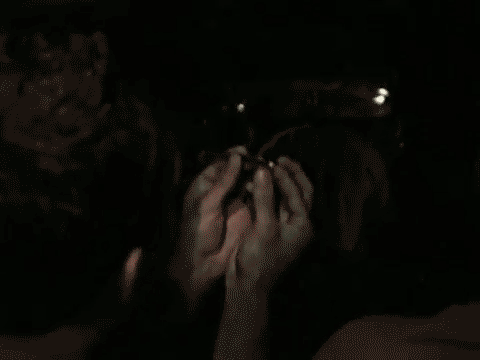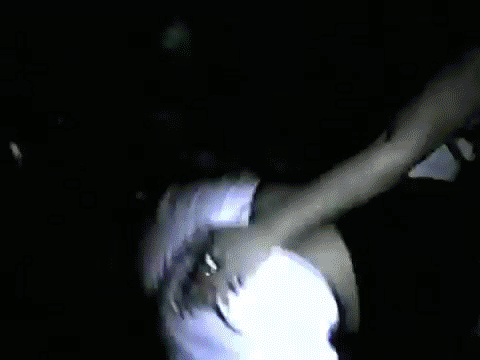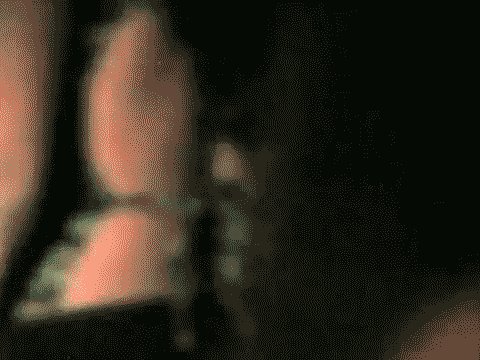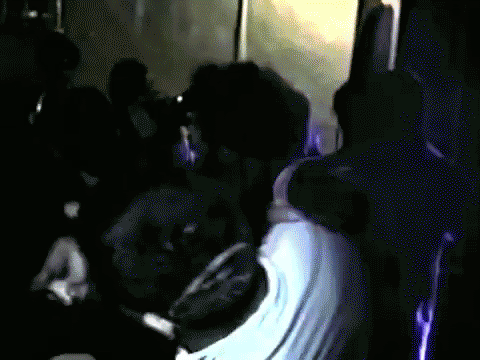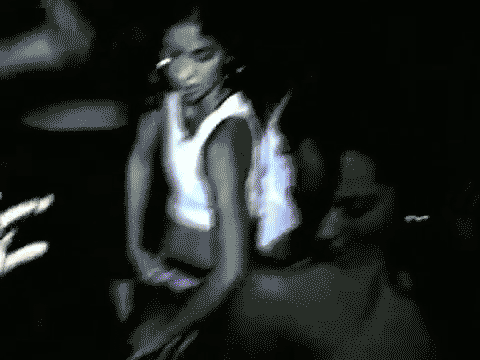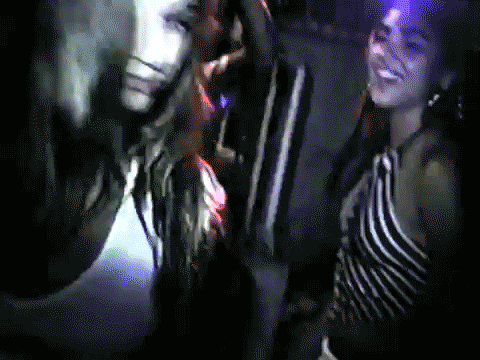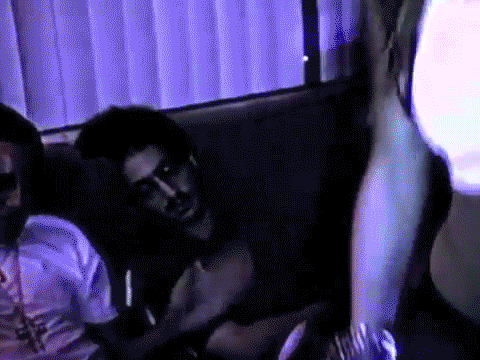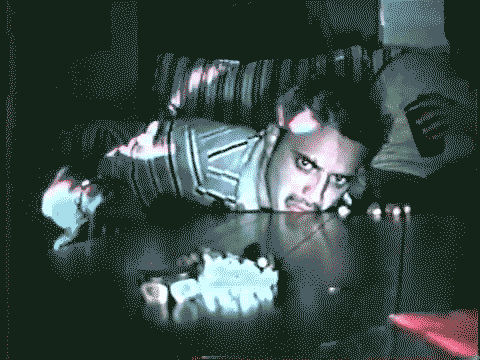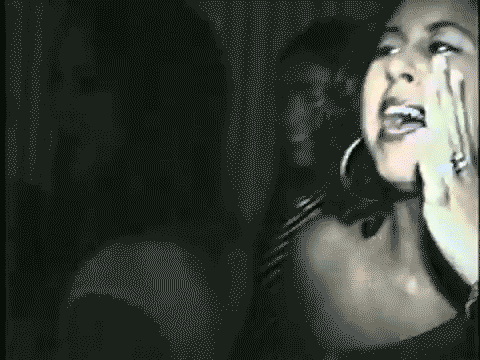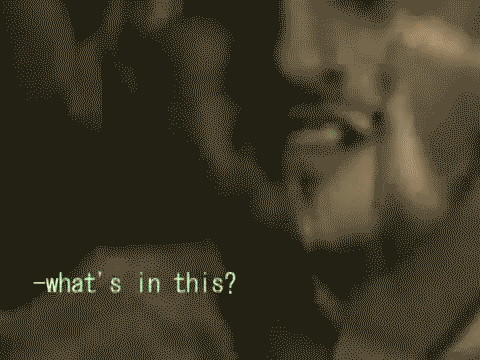
Miami 1996
2012
Nick Corirossi
A found footage film from a Miami booty party gone horribly wrong.
Nick Corirossi created this film for Borscht 8.
PRESS
"Earlier this spring, a friend sent me the link to miami1996.com in an otherwise blank email. The site, stylized to be some relic of an internet long gone, plays host to the above short film, Miami 1996. It's better that you take the nine minutes to watch it than have me ruin it's storyline here—but after having done so myself, I had to know who was behind it and what, exactly, was wrong with him or her. Some middle school-level internet sleuthing led me to a Funny or Die writer named Nick Corirossi, who confirmed that it was indeed him who wrote Miami 1996. We spoke over the phone about his hometown, what inspired the film and his history as a comedy writer. "The Fader
"Meet Nick Corirossi, the native 305-er behind the Borscht Film Festival‘s “Miami 1996”, a found-footage film from a Miami booty party gone horribly wrong — and then see it yourself when it screens Saturday night at Borscht 8 at the Arsht Center!"Huffington Post
GIFS
essay
Polo Sport Made Me Hardcore (Societal Decay and the Loss of Innocence at the Hands of DJ Laz)
by Milton Garcia
Nick Corirossi is a Miami native, a former child actor who cut his filmmaking teeth competing with future Borschtians at the now-defunct Miami Children’s Museum Film Festival. He was nothing short of dominant in the stretch from 1999-2005, winning the top prize every year except for 2002 when the lost to Screwdriver of Destiny!, then-New World School of the Arts senior Andrew Hevia’s adaptation of Faust, and 2004 when Corirossi’s adaptation of Romeo and Juliet set in South Miami (complete with motorcycle chases) lost to The Melancholy Times of Larry Jenkins, Clown, 16-year-old Lucas Leyva’s 45 minute opus about a depressed man born with a skin disease that makes him look like he is wearing clown make-up. None of these movies were remotely watchable. It should also be noted that these are facts, not precious Wes Anderson plot points.
Nick studied at the FSU Film School in Tallahassee and later moved to Los Angeles, where he began making YouTube sketch comedy with a group called Friend R Us. The production value was low and the humor was expectedly broad, but there were transcendent moments. Highlights include Correctamundo, which begins as a send-up of Spanish TV that slowly deconstructs itself, devolving into a literal satanic bloodbath of drugs, death, and Domino’s Pizza product placement before reaching the crescendo of a priest in psychosexual crisis delivering an internal monologue worthy of Miguel de Unamuno- the moral frailty of man laid bare via Telemundo tropes. It’s frankly brilliant, and confounded/delighted/irritated a room of 1,800 unsuspecting people when it screened at Borscht 7.
Still, it seems like the majority of the Friends R Us videos were designed for mass consumption/potential employers, and it wasn’t long before Funny Or Die recruited them to create branded content.
At FOD, Nick quickly began making work with celebrities like Sir Patrick Stewart and Jim Carrey. His most famous skits are probably the Captain Planet series, featuring Don Cheadle as the eponymous superhero descending into madness. Each of the four episodes gets progressively more absurd, culminating with C.P.’s sublimely idiotic demise. Within the skits there are glimpses of unlikely originality such as: a Lynchian nightmare moment where a man gets turned into a rabbit and eats his coworker, an oil tanker turning into a herd of manatee, and a dubstep non sequitur.
Likewise, in his popular if unfunny KFC Loves Gays with John Goodman as Colonel Sanders there is a moment where the Colonel lays his crass intentions bare- directly addressing his audience and consumers as "walking, talking, money-mouths."
The moment towers over the rest of the piece as an effective and amusing indictment of cynical political statements made in financial pursuits, illuminating the hapless feeling of being a consumer in late-era capitalism, in less than ten seconds.
For Miami 1996, Borscht wanted to free Nick Corirossi from the frat-boy punch lines of FOD necessitated by their audience of Ron Burgandy imitators to unleash his deft manipulation of the id, and showcase his ability to slowly bring the dark subtext of mainstream entertainment to the surface until we are saturated in it- drowning in a nightmarish fulfillment of our base desires that drive us to consume this content in the first place. He does not disappoint.
The first part of the film is an authentic, almost-anthropological study of backyard parties in mid-90’s Miami (and perhaps beyond). As local artist Kevin Arrow pointed out, the film has much in common with British video artist Mark Leckey’s Fiorucci Made Me Hardcore, a 15-minute found footage collage chronicling the UK dance club scene. Miami 1996 is constructed in a similar fashion, sampling various iconic booty bass songs to create a "vortex of rhythm and mood" showcasing the typical Miami dances, clothing, vernacular and mores of the moment.
Where Ficorucci Made Me Hardcore is elegiac, Miami 1996 is necessarily eschatological. Northern Soul is jubilant, bass is menacing and primordial, its very sound waves are marked by decay.
It’s appropriate that this sonic deterioration has become the anthem for a city keenly aware of its mortality- not just on the macro level, where scientific predictions place it back underwater in less than two generations- but as a fact of daily life; Nothing can keep in the heat and humidity. The fragrant mangos and avocados that melt into our driveways are a constant reminder that in Miami, everything is rotting.
As depicted by the two films, there is a joyful escapism to England’s party scene that is missing from Miami. There is nothing celebratory about a dance that to an outsider is an animalistic simulation of sex. It is fully without subtext. Even in fully losing oneself to the trance of music, keg beer, drugs or repetitive movement, there is no transcendence in booty-dancing, only a deeper Dionysian darkness.
As they progress into the night, these parties resemble clothed teenage orgies, all hormones and sweat and the eminent possibility of sex or violence. Society succumbs to the decay of the 808 drums, leaving only primitive, sexually competitive impulses.
Here is where Corirossi’s work structurally departs from Lecky’s, and we begin to feel the filmmaker’s hand.
Miami 1996 bills itself as being comprised of "found footage from a mid-90’s Miami booty party," but this description is a somewhat tongue-in-cheek. While the production design and wardrobe capture the detail of the era, Van Alpert’s (another Miami native) Hi-8 and VHS cinematography is more conceptual than authentic, particularly in dreamy Steadicam shots and the subjective "bad trip" of one of the characters.
This points us to the true protagonist of the story: The Editor who finds and compiles this footage. After the film’s Borscht 8 premiere, Nick told Scott Macaulay of Filmmaker Magazine that he "wanted it to look like a talented filmmaker found some old snuff footage and cut it together into something more crafted." Through this choice, the film’s fetishization of VHS decay, intercutting of period music video clips, and insistent lingering on the more extreme aspects of the party create the narrative of a man reconciling his own adolescent demons from the era.
Interspersed with the footage of dancing or fighting, The Editor crafts a light plot. It tells the story of Tulio or "Flaco," who, over the course of the night, smokes a "dirty," attempts to sell knockoff cologne, and looks for someone to hump. Unfortunately he offends the wrong girls, usurping natural order and turning the party against him.
In The Editor’s warped morality play, debauchery is innocence and the backyard is an 88th street Eden where humanity is in its purest form, untainted by responsibility, empathy, or learned behaviors. We are animals, and we are happiest when allowed to act like them.
Naturally, The Editor places the image of a serpent several times throughout Miami 1996, and it ultimately begets terrible knowledge. The movie ends abruptly when Tulio dies, and one can assume the party and fun end with him. Tulio dared disturb the harmony of Eden, and now it is gone for everyone. All that remains is the heavy yoke of civilization….
The unknown fictional editor uses the film as a vehicle to deal with his own premature loss of innocence, but its very existence and construction, as well as the digital extensions of the narrative, suggest an inability to move forward.
I haven’t asked Nick if the film is actually autobiographical, but I remember at the time the movie took place there were many stories of parties ending in similarly violent fashion—savage beatings, vehicular manslaughter, and the occasional stabbing.
Nick ends the movie in Borscht’s ethos of Miami mythmaking in a multiverse where everything can, did, and will happen. The authenticity of the footage and the story are irrelevant, but I swear I saw myself in some of the shots, sweat pouring down my Hilfiger tee… still pure and evil and oblivious….
SCREENINGS
Glasgow Short Film Festival, 2014
Borscht Corporation
Borscht Special Projects
Calle 27 #601 e/ C y D, Vedado
La Habana, 10400, Cuba

 Borscht Corporation
Borscht Corporation